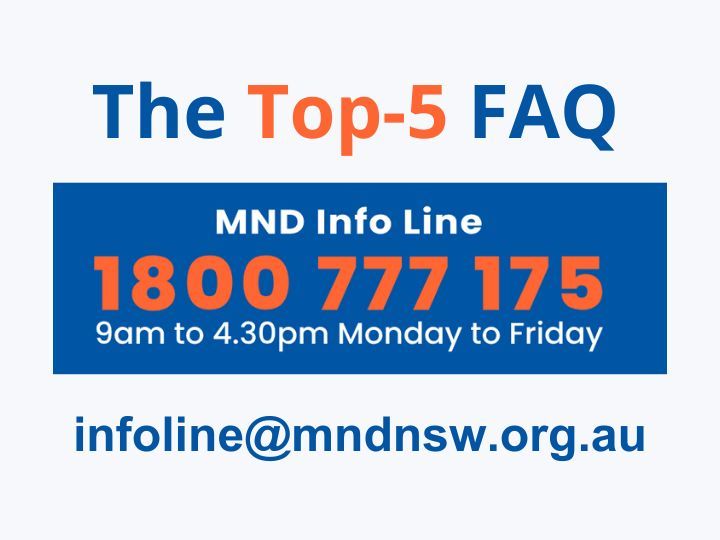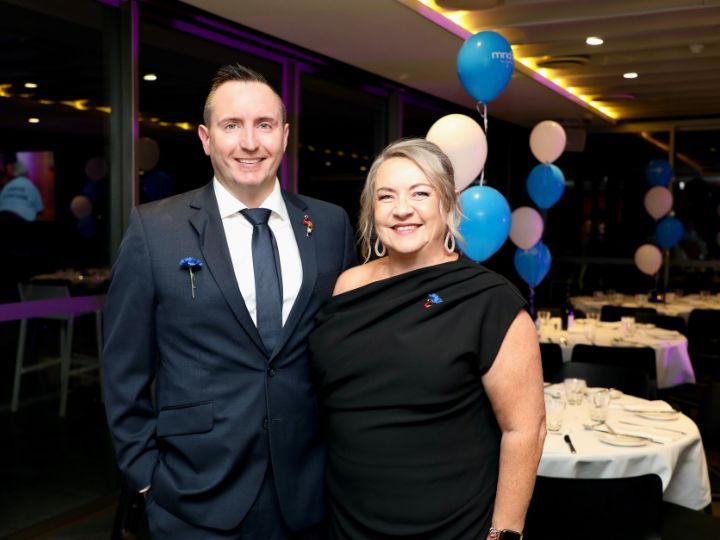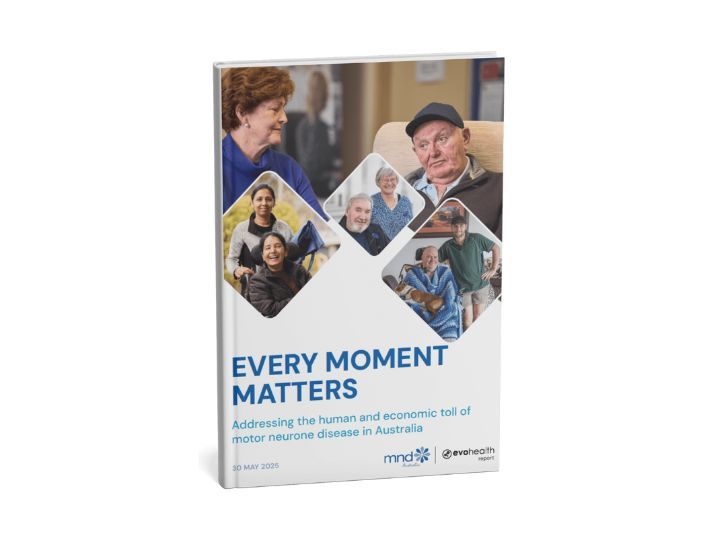Welcome to this month’s insights from the MND NSW Info Line! Every month, the MND NSW Info Line answers hundreds of questions from people living with motor neurone disease (MND), their families, carers, and health professionals. We have rounded up the top 5 questions we’ve been asked lately from across NSW, ACT and NT. From travelling safely to managing pain, these are the answers you have been looking for along with practical information and resources to help.
Question 1: What is a cough assist machine?
As MND progresses, the muscles that help you cough can weaken, making it harder to clear your airways. A cough assist machine helps by delivering a gentle breath of air in, then quickly sucking it out, simulating a natural cough.
People with MND may choose to use a cough assist machine to:
- Clearing mucus more effectively
- Reducing risk of chest infections
- Improving comfort and breathing
Your Respiratory Clinic or Respiratory Physiotherapist can advise whether a cough assist machine is suitable for you.
Learn more
- Breathing: what you can do
- CoughAssist + RespirTech Service Video
- For health professionals: MND Hub | MI-E Cough Assist: A Course for Clinicians | Content
Question 2: I am a carer of a loved one with MND, what financial support is available?
Caring for a loved one with MND can bring financial pressures to you and your family, but there are supports available.
Options include:
Carer Payment: an income support payment if you cannot work due to full-time caring responsibilities
Carer Allowance: a fortnightly supplement for carers providing daily support
Carer Supplement: An annual payment applicable if you receive a Carer Payment or Carer Allowance
Learn more:
Question 3: How can I travel safely (eg flying or public transport) with MND?
Living with MND doesn’t mean you have to stop travelling but it often means you’ll need to plan ahead to make your journey safe and comfortable. It is important to note that each state and territory have different options to support people with disabilities when travelling.
Public Transport
- Most public transport in NSW, ACT, and NT offer wheelchair access and priority seating but assistance may need to be booked in advance. Check with your state’s transport authority about accessibility and routes.
- Consider applying for a companion card which allows a support person to travel with you for free in some situations.
Air Travel
- Airlines can provide assistance with boarding, seating and luggage but you will need to let them know at the time of booking.
- Passengers should also detail their special equipment, dietary requirements, and medications to the airline.
Driving
- If you are a driver, you are required to tell your local authority about any medical conditions that may affect your ability to drive safely.
- A formal driving assessment may also be required. Please refer to your local transport authority for more information. An occupational therapist can also provide advice.
Always allow extra time, considering carrying a list of your equipment needs, and talk to your MND Advisor about accessible transport and travel assistance in your area.
Learn more:
- Other Resources | Forward Ability Support
- Travelling with MND - MND Victoria (a video that provides personal insights into travelling with a diagnosis of MND)
- Daily life with Motor Neurone Disease | Living with MND
- Companion cards
Question 4: What is the most common type of MND?
MND is an umbrella term for a group of diseases that affect the motor neurones. The most common type of MND is Amyotrophic Lateral Sclerosis (ALS) which affects both the upper and lower motor neurons. Approximately, 70% of people with MND are diagnosed with ALS.
Key features of ALS include:
- Muscle weakness, often starting in the arms or legs
- Stiffness in limbs
- Overactive reflexes
Learn more:
Question 5: I am experiencing pain, is this a symptom of MND and how can I manage it?
MND does not directly cause pain. However, many people with MND do experience pain at some point after diagnosis. This can be for a variety of reasons including:
- Tight or stiff muscles
- Lack of mobility
- Muscle spasms or cramps
- Pressure sores
- The wasting of muscles can lead to less support for joints and posture
- Constipation
- Morning headaches due to poor sleep.
If you are in pain, it is important to talk to your healthcare team early. Some ways to manage pain may include:
- Pain relief medication from your GP or Neurologist
- Assistive equipment or positioning aids from your Occupational Therapist
- Medications or diet changes to manage constipation from your GP or Dietician
- Splints to support your limbs from your Orthotist
- An assessment and exercises/stretching program from your Physiotherapist.
Learn more:
Do you have a question about MND?
Whether you’re newly diagnosed, caring for a loved one, or navigating the MND space as a health professional, we’re here to help.
Call us on 1800 777 175
Or submit and online inquiry at Contact MND NSW
“We can't do this alone. But together, we're unstoppable.” MND Community Member



